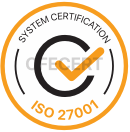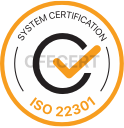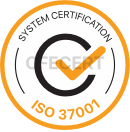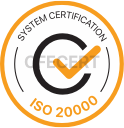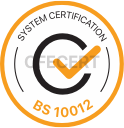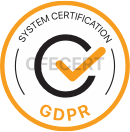The number of management systems has risen dramatically in recent years, reflecting the needs and demands of more and more organizations looking to improve their performance across a wide range of areas and sectors. And most companies have more than one. ISO’s useful guide to integrating management system standards.
From improving quality to energy efficiency, environmental performance or even road traffic, the use of management systems has grown rapidly in recent years, reflecting increasingly complex operating environments and contexts. The quest for continual improvement and sustained performance has prompted the need for a handbook to help guide organizations through effective management system design that is agile and integrated, to respond and grow.
ISO 9001 (quality), ISO 50001 (energy) and ISO 14001 (environment) are some of ISO’s most well-known and used management system standards (MSS), amongst more than 60 that make up the ISO portfolio, which also covers areas such as organizational health and safety (ISO 45001), food safety (ISO 22000), education (ISO 21001) and information technology (ISO 27001). Unlike other types of standards, MSSs have an impact on many different aspects and functions of an organization and, increasingly, companies have more than one.

The integrated use of management system standards brings together international expertise, diverse industry case extracts and implementations, and best-practice guidance on integrating management system standards.
Many organizations benefit from multiple management systems to help them ensure their systems and processes are in line with their objectives and help them maintain their business model through ever-changing environments.
The integrated use of management system standards was developed by the ISO technical committee.
Benefits of Integrated Management System
In addition to quality, environment, and occupational health and safety, an organization’s integrated management system can include many other different management systems, such as a financial management system, an information security management system, a business continuity management system, a food safety management. system or social responsibility management system. An integrated management system is an effective corporate approach to simplify work, avoid conflicts and reduce duplication of documents. Integrating management systems can possibly lead to cost savings and efficient use of resources within an organization.
Integration of management systems has many advantages in being beneficial for organizations;
- Improving Performance
- Eliminating Redundancies
- Accountability
- Establishing Consistency
- Reducing Bureaucracy
- Cost Reduction
- Optimize Processes and Resources
- Reducing Maintenance
- Integrated Audits
- Facilitating Decision Making
CFECERT is an independent certification body serving companies for a wide variety of standards. Among others, it provides training and certification services to ISO 9001 (Quality Management Systems), ISO 14001 (Environmental Management Systems) and ISO 45001 (Occupational Health and Safety Management Systems) for professionals who want to gain comprehensive knowledge of the main processes.
ISO Standards and Professional Trainings offered by CFECERT
- CPD Certified Lead Auditor courses (5 days)
- CPD Certified Implementation courses (2 days)
- CPD Certified Internal Auditor courses (2 days)
- CPD Certified Awareness courses (1 day)



